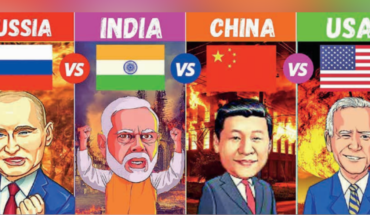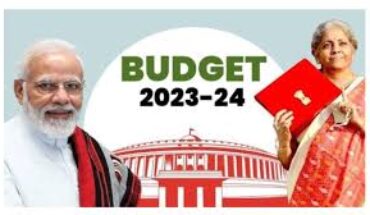Puhazh Gandhi P explains why the Air India asset sale sets a dangerous precedent. The sale of the loss-making national carrier Air India to the Tata Group is a move that evoked a mixed response. While some hailed it on the assumption that it would no longer spell a further loss to the exchequer, its opponents felt that a national asset was being sold at a throwaway price without transparency by the Union government.
On October 8, 2021, the Union government announced that Tata Sons was the winner of the bid for the airline for consideration of Rs 18,000 crore; the Tatas would retain Rs 15,300 crore of Air India’s debt and pay Rs 2,700 crore in cash to the Government. The seller, the Government of India, would retain a liability of Rs 46,262 crore that was transferred to a special purpose vehicle, the Air India Asset Holding Ltd (AIAHL) — thereby passing on the liability to individual tax-payer citizens. Thus, what was technically sold was just aircraft routes/landing rights and some core assets of Air India, and not Air India per se.
The sale of an enterprise is different from the sale of its assets (otherwise known as ‘asset sale’), where in order to unlock the value of assets, liabilities are retained by the seller either by himself or through a special purpose vehicle, and assets are sold for a competitive price, as otherwise, the liabilities will surpass the value of the assets, rendering the enterprise value to negative. This is the norm in many corporate transactions.
It appears that this is the logic that was the driving force behind the Air India sale, where some assets (aircraft and a 50% stake in an airport services division) were sold to the Tatas, and the Union government retained a significant portion of the liabilities through the AIAHL.
While an asset sale is normal in a corporate private transaction, the Government needs to exercise caution when selling a national asset to a private player. In a private asset sale, there are independent checks and balances, such as regulatory approvals, and the consent of the secured creditors (mostly banks) who will give their consent to park the liability only when they are satisfied that the promoters or the shareholders of the private enterprise would be able to satisfy the liabilities either from the proceeds of the sale or otherwise.
In a typical asset sale by the Government, these approvals are a mere formality. When the sovereign government assumes the debt, no banks that the government directly or indirectly controls can conduct due diligence independently on the nature of the sale and report fairly on whether the proceeds of the sale are sufficient to satisfy the debt because the government has given an undertaking to repay the debt or the government may even force banks into a settlement with lesser repayment or even a write-off. Thus, it is citizens who will end up repaying the debts of Air India.
It is prudent to extend the doctrine of ‘public trust’ to the government’s management of public sector enterprises. There is a fiduciary duty cast upon the government to act fairly and in a transparent manner while dealing with public assets. Unlike a private asset sale, a government selling public assets and assuming liabilities without proper planning will impose an enormous debt burden on citizens.
The Air India asset sale needs scrutiny in light of the Government’s new National Monetisation Pipeline (NMP), where public assets will be monetised either as leases or outright sales. Air India’s asset sale and retention of liabilities set a dangerous precedent as it could result in selling public assets to government faithfuls and leaving the liabilities on citizens.
The privatisation of loss-making public sector enterprises may prevent the state from incurring further losses. However, unless the sale proceeds are substantial, genuine and transparent, a crisis of legitimacy may arise.
Electoral bonds
One example is the anonymous electoral bonds scheme which taps corporate funding to help any political party and where the details are known only to the ruling party, which could fuel mistrust of such asset sales. A Right to Information filing by the Association for Democratic Reforms showed that with the State Bank of India as the sole authorised dealer of electoral bonds, out of Rs 3,429 crore of the total value of electoral bonds generated by the bank (FY19-20), the ruling party at the Centre alone devoured a whopping Rs 2,606 crore, or 76% of the total bonds issued so far. This is also the period that saw some major privatisation of public sector enterprises.
The recent award of a contract worth Rs 1,126 crore to a Chinese firm (Shanghai Tunnel Engineering Co. Ltd.) to construct an underground rail stretch in Delhi and a contract worth Rs 170 crore to another Chinese firm, Taizhong Hong Kong International Ltd., for the supply of wheels to Vande Bharat trains cannot be seen in isolation. It is important to remember that China is an aggressor at the Line of Actual Control. Here, the role of discreet political funding through anonymous electoral bonds needs to be assessed more closely.
Consult States
It is vital to recognise the role of States in establishing a public asset such as Air India, They have actively participated in the growth of the airline in the form of land and other infrastructure to its offices. States were not consulted in the whole process which is a breach of the spirit of ‘cooperative federalism’.
According to Article 1 of the Constitution, India is a Union of States, i.e., the idea of India as a Union lies with the States, which are the owners of land and responsible for the maintenance of other infrastructure. Hence, any unilateral sale of assets by the Union without consulting States would only deepen the mistrust between the Union and the States.
Puhazh Gandhi P. is an international trade and investment attorney. He is also the State Joint Secretary, Non-Resident Indian affairs, Dravida Munnetra Kazhagam (DMK) and Executive Coordinator, Dravidian Professionals Forum. Views are personal





